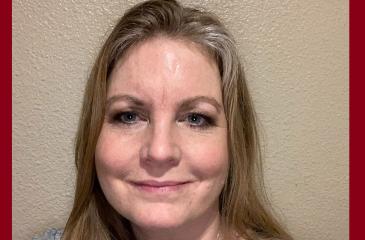In 2022, three community leaders from rural Minnesota were selected as the second cohort for Project REACH (Rural Experts Advancing Community Health), a joint initiative of the University of Minnesota Rural Health Program through the Office of Academic Clinical Affairs and the Clinical and Translational Science Institute.
Project REACH is a year-long program that provides diverse community leaders in rural Minnesota with health policy and leadership training. Participants learn to frame health policy challenges and how to communicate effectively with state legislators and other policymakers. Participants identify a local challenge, build leadership skills to address the challenge, and develop and share a policy proposal with relevant decision makers. Throughout the program, participants have access to mentorship from U of M faculty and staff.
Jeanna Kujava, a registered nurse and public health director at a hospital based in Kittson County in Hallock, Minn., is one of the members of the second Project REACH cohort. Kujava has worked in migrant health, rural hospital nursing, and school health. Her passion lies in public health and the variety of challenges that come with it. She enjoys working with individuals and communities, particularly the opportunity to collaborate and build partnerships to improve health through policy, system, and environmental change.
During her work with Project REACH, Kujava focused on improving access to mental health services and trauma-informed care in Kittson County. For her policy proposal, Kujava met with Representative John Burkel and Senator Mark Johnson, alongside meetings with public health colleagues, professors, and was involved in the Kittson County Substance Abuse Prevention Task Force (SAPT). Together they aim to advise on funding allocation to address substance abuse relating to primarily opioid prevention, in addition to alcohol, tobacco, and THC.
In addition to her policy work, Kujava has actively engaged with various stakeholders and built partnerships and collaborations within Kittson County– she joined the Northwest 8 Adult Mental Health Local Advisory Council, advocating for individuals experiencing mental health issues in the rural northwest region of Minnesota. Additionally, she became a member of the Help, Outreach, Prevention & Education (H.O.P.E.) coalition with a focus on raising awareness surrounding mental health, mental health stigma, and suicide prevention. She maintains a strong presence and involvement in the Community Health Needs Assessment and Implementation (CHNA/IP) of Kittson Healthcare and Kittson County Public Health, focusing on four priorities: stress and anxiety, obesity, heart health, and access to healthcare, which she sees having a connection to substance abuse prevention.
“Project REACH was a phenomenal opportunity to build upon policy and advocacy skills,” says Kujava. “Policy and advocacy work can be compared to a marathon and not a sprint. I was looking for a new way of performing my work that would be sustained into the future with ongoing impact. Project REACH allowed me to build partnerships with experts that I will be forever grateful for and with tools that I now use daily in my personal and professional role.”



